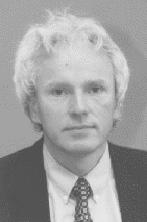Josef-Kittler

Starting from a provincial town in Czechoslovakia and making it as one of the top professors in the Western world is an epic of coincidence, adventure and achievement! When the Russian tanks entered Prague, Josef Kittler was an undergraduate student of Radio Electronics at the Czech Technical University in Prague, and found himself on a brief visit abroad.
That summer Josef came to the United Kingdom to spend his holidays doing voluntary work in a hospital in Northern Ireland. Faced with the sudden overcrowding in his native country he decided to continue his education in the UK. However, before being able to resume his studies, he had a major task to accomplish: he had to learn the language of his new country. One year after the Prague Spring had ended, Josef Kittler was accepted as a final year student in the Engineering Department of Cambridge University.
He did well enough to be accepted as a PhD student in the Control Engineering Group headed by Professor John Coales FREng, to work on the topic of Statistical Pattern Recognition under the supervision of Professor Peter Young.
From then on, his academic life has been a series of successes and triumphs: his PhD in 1974; his book in 1982 published by Prentice Hall being considered for years the ‘Bible’ of Statistical Pattern Recognition; his SERC fellowship at Cambridge; his Royal Society European Research Fellowship at Ecole Nationale Superieure des Telecommunications, Paris; his IBM and subsequent Rutherford Research Fellowships at Oxford; his job with Rutherford Appleton Lab; and finally his Readership at Surrey University in 1986 with the task to set up research in the area of Pattern Recognition and Machine Intelligence. He achieved all this, and set up one of the most successful groups in the country, managing to raise some £ 9,000,000 in grants over the years, produce more than 500 publications, more than 150 of which were in journals, edit several books, chair many committees, sit on the editorial boards of several journals, offer consultancy to many companies and finally set up his own spin-off company, OmniPerception Ltd, in 2001 to exploit his research output in Biometrics.
His professional activities and successes were rewarded by many scientific honours he has received: ScD by Cambridge in 1991, ‘Honorary Medal’ from the Electrotechnical Faculty of the Czech Technical University of Prague in 1995, honorary Doctorate by Lappeenranta University of Technology in 1999, elected president of the International Association of Pattern Recognition in 1994–1996, IAPR Fellow in 1998, Fellow of the IEE in 1999, Fellow of the Royal Academy of Engineering in 2000, IEE Achievements Medal for outstanding contributions to visual information engineering in 2002, Fellow of the Institute of Mathematics and its Applications in 2003, and Distinguished Fellow of the BMVA in 2002.